
What are the different categories of ADAS relevant to India, and why has its adoption been challenging compared to other countries?
Advanced driver assistance systems (ADAS) vary in complexity from level 0 to level 5 autonomy. Level 0 (L0) represents standard vehicles where the driver controls all functions. Level 1 (L1) includes basic warning features, such as lane departure alerts. Level 2 (L2) introduces automation, including lane-keeping assist and adaptive cruise control, using systems like Mobileye, now prevalent in vehicles from brands such as Mahindra.
The challenge of adopting ADAS in India, compared to other countries, arises from the country’s unique road conditions. Inconsistent or absent lane markings, diverse vehicle types, and unpredictable road scenarios hinder the effectiveness of ADAS technologies, which rely on consistently detecting markers and obstacles. Moreover, substantial global investments in ADAS research and development (R&D) have not yet translated effectively to Indian roads, where the variability and complexity far exceed typical test environments. This situation has posed significant challenges in creating reliable systems that can adapt to India’s diverse traffic conditions, like the leap from basic chatbots to more advanced AI models like ChatGPT and large language models (LLMs).
Can you describe your journey in identifying and addressing the challenges with ADAS, especially in environments without clear infrastructure, such as missing lane markings in India?
Bu hikaye Electronics For You dergisinin September 2024 sayısından alınmıştır.
Start your 7-day Magzter GOLD free trial to access thousands of curated premium stories, and 9,000+ magazines and newspapers.
Already a subscriber ? Giriş Yap
Bu hikaye Electronics For You dergisinin September 2024 sayısından alınmıştır.
Start your 7-day Magzter GOLD free trial to access thousands of curated premium stories, and 9,000+ magazines and newspapers.
Already a subscriber? Giriş Yap
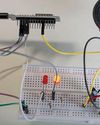
ESP32-Powered AUDIO-VISUAL SIREN
This sound alternator is designed to simulate the effects of a police siren, combining sound and light to create a dynamic audio-visual experience.
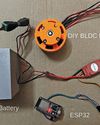
BLDC MOTOR With Web-Based Speed Control Using ESP32
Integrating wireless control into brushless direct current (BLDC) motor systems opens up exciting possibilities for applications such as remote-controlled cars, robots, and other innovative systems.
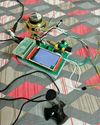
Pi Zero Portable BILINGUAL TRANSLATOR
This system is designed as a bilingual translator, leveraging the gTTS library to support multiple Indian languages, including English (en), Bengali (bn), Gujarati (gu), Hindi (hi), Kannada (kn), Malayalam (ml), Marathi (mr), Tamil (ta), Telugu (te), and Urdu (ur).
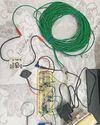
Op-Amp-Based VEHICLE THEFT DETECTOR
A simple, low-cost device can effectively alert homeowners or occupants if a parked vehicle is moved or tampered with.
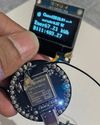
loT SMART METER With Dashboard
Energy meters in homes track electricity usage, enabling accurate billing by governments and providers.

Choose The Right Cloud Platform For Implementing loT PROTOCOLS
Working with loT protocols like MQTT, AMQP, and CoAP on cloud platforms is essential for developing scalable and efficient lol applications. The choice of the programming platform will depend on factors like project requirements, existing skills, and target devices. Leveraging the appropriate libraries and cloud services can enable seamless integration of lol devices with cloud-based applications.

Why TMR SENSORS Lead Next-Generation Design
TMR sensors are gaining traction in industries needing precision and power efficiency. What makes them the go-to choice for modern designs?
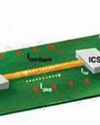
DESIGNING PCBs For EMI Management
Electromagnetic interference can derail your PCB’s performance. EMI management is not just a technical necessity but a hallmark of exceptional PCB design.

CUTTING COSTS, NOT CORNERS: Building Large Scale Applications With Open Source Software
Here are some strategies and best practices for leveraging open source to create enterprise-grade web and mobile applications without sacrificing quality or functionality.

"We Are One Of India's Very Few State Bodies To Manage The Entire Lifecycle Of The Electronics EcosystemFrom Approvals To Subsidies."
What is Gujarat State Electronics Mission GSEM), and how is it attracting major investments in electronics manufacturing, particularly semiconductor manufacturing, to Gujarat? To delve deeper, Electronics For You’s Nijhum Rudra spoke with Manish Gurwani, the head of GSEM. Here is what he revealed...